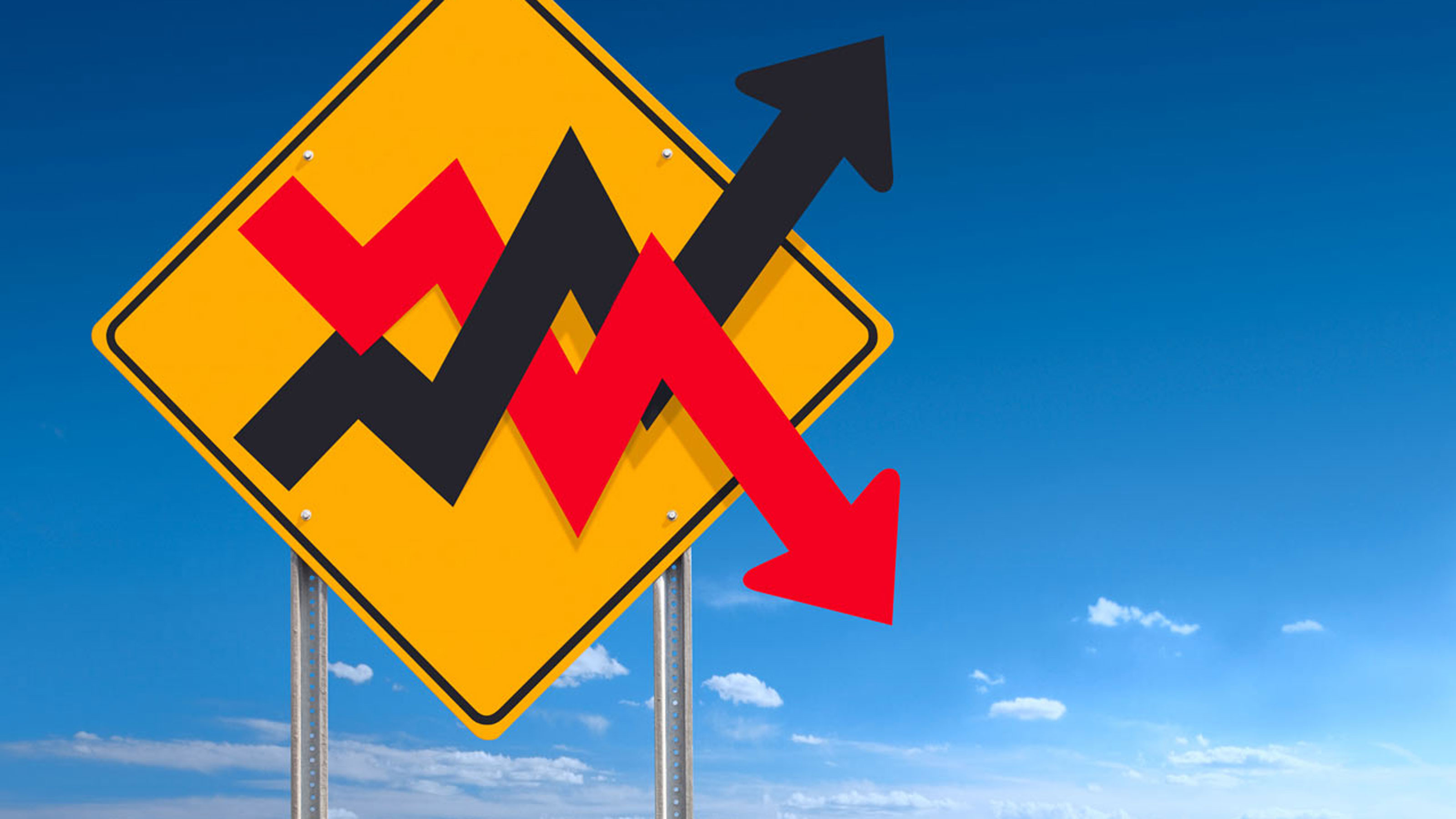8 Investing Lessons Learned from an Insane 2020
This crazy year has changed everything, but it’s also highlighted some classic investing lessons in new ways.


Profit and prosper with the best of Kiplinger's advice on investing, taxes, retirement, personal finance and much more. Delivered daily. Enter your email in the box and click Sign Me Up.
You are now subscribed
Your newsletter sign-up was successful
Want to add more newsletters?

Delivered daily
Kiplinger Today
Profit and prosper with the best of Kiplinger's advice on investing, taxes, retirement, personal finance and much more delivered daily. Smart money moves start here.

Sent five days a week
Kiplinger A Step Ahead
Get practical help to make better financial decisions in your everyday life, from spending to savings on top deals.

Delivered daily
Kiplinger Closing Bell
Get today's biggest financial and investing headlines delivered to your inbox every day the U.S. stock market is open.

Sent twice a week
Kiplinger Adviser Intel
Financial pros across the country share best practices and fresh tactics to preserve and grow your wealth.

Delivered weekly
Kiplinger Tax Tips
Trim your federal and state tax bills with practical tax-planning and tax-cutting strategies.

Sent twice a week
Kiplinger Retirement Tips
Your twice-a-week guide to planning and enjoying a financially secure and richly rewarding retirement

Sent bimonthly.
Kiplinger Adviser Angle
Insights for advisers, wealth managers and other financial professionals.

Sent twice a week
Kiplinger Investing Weekly
Your twice-a-week roundup of promising stocks, funds, companies and industries you should consider, ones you should avoid, and why.

Sent weekly for six weeks
Kiplinger Invest for Retirement
Your step-by-step six-part series on how to invest for retirement, from devising a successful strategy to exactly which investments to choose.
While there are still several weeks left before we usher out the year 2020, there is no question that it has been one of the most challenging years in history. The global COVID-19 pandemic has impacted the lives of people around the globe. The health challenges, deaths and overall disruption to our daily lives is unprecedented. There has also been civil unrest and a major political divide across the country not seen since the 1960s.
The stock market has also experienced a roller-coaster ride. This year investors have been through some of the most volatile trading sessions ever, as well as the shortest bear market in U.S. history.
These trying times are an opportunity for serious introspection. Below are some investing lessons that I’ve learned in 2020.

1. Emotional decisions derail your finances
At the start of this year many investors expressed unbridled exuberance as the markets reached new highs on a regular basis. The fact that stocks also go down, or fluctuate in value, was not on the minds of most people. This led many investors to take on more risk than they could handle.
When the market went into a free fall in March, panic set in and clients called me asking if they should move to cash, shift around their allocation or even get out of stocks altogether. Thankfully, after having conversations with the nervous clients, none of them made any rash decisions.
A few weeks after the drop, the market began to recover its massive losses. Not wanting to miss out on the market surge, clients again began to call me. This time they asked why they didn’t own more stocks. This Jekyll and Hyde change in attitude may seem illogical in retrospect. However, when living in the moment, it’s easy to get caught up in the emotions of the day.
Implementing strategies to manage emotions and the actions you take is imperative.

2. The importance of bonds
In this ultra-low interest rate environment, high-quality bonds still serve an important purpose in most investors’ portfolios. This lesson was reinforced after the market plummeted. Owning high-quality fixed income provided a psychological benefit by minimizing volatility, which helped investors keep their emotions in check. It also gave investors a buffer from which to withdraw money if their income was reduced due to the state of the economy. Since bonds fluctuate much less than equities, they could sell a bond, instead of their stocks at steep losses, to help make ends meet.
Finally, bonds also provide attractive rebalancing opportunities that may improve one’s return over time. All these factors helped keep investors on track toward achieving their financial goals despite the tumult in the markets.

3. Diversification is essential
While preaching portfolio diversification has become a cliché, investors experienced the clear benefits of this approach earlier this year. In March, the S&P 500 fell over 12%. Some specific market segments did far worse. U.S. publicly traded REITs, emerging market stocks and West Texas Intermediate Crude fell approximately 21%, 15% and 55%, respectively. However, investment grade bonds were down only 0.6% during the same time period.
A simple diversified portfolio with just 60% in U.S. large cap stocks and 40% in investment grade bonds would be down a more modest 7%. Minimizing volatility also reduces panic selling, which is one way to help all investors stay the course.

4. The markets are unpredictable in the short-term
The market rallied significantly in the two days prior to Election Day, even as the country braced for protests due to the results of the presidential election. The S&P 500 was up 1.23% on Nov. 2, 1.78% on Nov. 3 and even rose 2.20% on Nov. 4, the day after the election despite not having a clear winner. Many market observers would expect this extreme level of unease and uncertainty to cause the market to fall, but it did the opposite.
According to Fidelity, from Jan. 1, 1980, through Aug. 31, 2020, if you missed only the best five days in the market your performance would be 38% lower for the time frame. It’s far better to focus on developing a strategy that you can stick with over the long run than trying to predict what the market will do on a day to day basis.

5. Selectively doing nothing may be a prudent strategy
Many investors have the urge to tinker with their investments. This is especially true when the markets are choppy. Watching their holdings gyrate widely in value can make anyone uneasy. That helpless feeling causes many to want to trade more frequently or make portfolio tweaks. However, sitting on your hands and not doing anything is usually the best approach.
During turbulent times, it’s crucial to avoid the big mistakes. Usually those missteps stem from doing too much, not doing too little.

6. Bad times present great opportunities
Warren Buffett put it best when he said, “be fearful when others are greedy, and greedy when others are fearful.” As the markets took a dive, I told clients with long-term time horizons and available cash that it was a great time to buy more stocks. The act of investing more money after seeing your portfolio drop so dramatically is very difficult. The comments I kept receiving included, “Why add money to something that keeps dropping in value?” and “Shouldn’t we cut our losses and move to cash?”
While every fiber of your being is telling you to run for the hills, reaffirming your strategy by adding money is generally the best decision when markets are in a selling frenzy.

7. Picking the perfect time to invest is an imperfect strategy
I had a couple start investing with me earlier this year. The husband’s IRA transferred in first, and we started investing it immediately at the end of February. The wife’s assets transferred in a few weeks later, and we started investing her money at the end of March. The husband’s performance this year is flat because he started investing right before the market crashed. On the other hand, the wife started investing at the bottom right before the market started its dramatic ascent. She’s up significantly at the end of November.
The fact is, investors should understand that the timing of when they start investing is mostly luck. For example, many Baby Boomers entered the workforce and started investing in the early ’80s right before one of the greatest bull markets in history. Conversely, many Gen Xers entered the job market in 2000 as the tech bubble imploded.
A common idiom for successful investing is, “It’s time in the market, not timing the market.” Instead of focusing on the ideal time to start, which is mostly out of our hands anyway, just jump in by establishing a disciplined process to invest and adding money over time. Even if the market doesn’t always cooperate, with the right process you can still build a meaningful nest egg and achieve your financial goals.

8. As bad as things are, they can always get worse
If 2020 had T-shirts, this would be the slogan printed on the front. It’s a good general lesson when it comes to the markets, as well.
When the market dropped early in March, several clients added money to their portfolios. Little did they know that the market had a long way to fall before its March 23 bottom. On March 16, alone, the S&P 500 dropped 11.98% in a single day. The fact that things can continue to deteriorate much longer than an investor anticipates is nothing new in the world of investing. For example, if you had invested in the energy sector in October 2005, and stuck with it through October of this year, you would have lost money. You also would have lost over 47% year-to-date as of this writing.
There is no guarantee an investment will bounce back even after 15 years. That’s why it’s imperative to stay globally diversified, and never put all your eggs in one basket, no matter how certain you are about any opportunity.

One bonus life lesson: Be positive
If there is one key message from this year, it’s to always stay optimistic. While much of the world went into lockdown for a good portion of the year, business and life managed to continue. Americans’ ability to adapt to a new “work-from-home” reality, aided by video conferencing software such as Zoom, made that possible despite the challenges.
In that vein, it’s important to never discount human resiliency and American ingenuity. Through every crisis, new successes have emerged. General Electric was launched in 1892 by Thomas Edison as the nation was heading into the Panic of 1893. In 1929, Disney emerged during the Great Depression. Hewlett-Packard was founded in 1939 right after the recession of 1937–1938, when GDP declined by approximately 19%. Fred Smith started FedEx at the end of the 1969-1970 recession, when many companies were hesitant about spending money on new products and services. The worst of times is often when the entrepreneurial spirit is most creative.
In his 2005 commencement address at Stanford University, Steve Jobs said, “You can’t connect the dots looking forward; you can only connect them looking backwards. So you have to trust that the dots will somehow connect in your future. You have to trust in something — your gut, destiny, life, karma, whatever. This approach has never let me down, and it has made all the difference in my life.”
People will be reflecting on the year 2020 for decades to come. However, I believe folks need to trust that with a positive outlook, we will become better people and more prudent investors because of the challenges we faced over the past year.
Disclaimer: Keep in mind that diversification does not guarantee a profit or protect against a loss. This article was authored by Jonathan Shenkman, a financial adviser at Oppenheimer & Co. The information set forth herein has been derived from sources believed to be reliable and does not purport to be a complete analysis of market segments discussed. Opinions expressed herein are subject to change without notice. Oppenheimer & Co. does not provide legal or tax advice. Opinions expressed are not intended to be a forecast of future events, a guarantee of future results, and investment advice. The Standard and Poor’s (S&P) 500 Index is an unmanaged index that tracks the performance of 500 widely held, large-capitalization U.S. stocks. Individuals cannot invest directly in an index. Adtrax #: Item 3347128.1
Profit and prosper with the best of Kiplinger's advice on investing, taxes, retirement, personal finance and much more. Delivered daily. Enter your email in the box and click Sign Me Up.

Jonathan I. Shenkman, AIF®, is the President and Chief Investment Officer of ParkBridge Wealth Management and serves as a financial adviser and portfolio manager for his clients. In this role, he acts in a fiduciary capacity to help his clients achieve their financial goals.
-
 Nasdaq Leads a Rocky Risk-On Rally: Stock Market Today
Nasdaq Leads a Rocky Risk-On Rally: Stock Market TodayAnother worrying bout of late-session weakness couldn't take down the main equity indexes on Wednesday.
-
 Quiz: Do You Know How to Avoid the "Medigap Trap?"
Quiz: Do You Know How to Avoid the "Medigap Trap?"Quiz Test your basic knowledge of the "Medigap Trap" in our quick quiz.
-
 5 Top Tax-Efficient Mutual Funds for Smarter Investing
5 Top Tax-Efficient Mutual Funds for Smarter InvestingMutual funds are many things, but "tax-friendly" usually isn't one of them. These are the exceptions.
-
 Social Security Break-Even Math Is Helpful, But Don't Let It Dictate When You'll File
Social Security Break-Even Math Is Helpful, But Don't Let It Dictate When You'll FileYour Social Security break-even age tells you how long you'd need to live for delaying to pay off, but shouldn't be the sole basis for deciding when to claim.
-
 I'm an Opportunity Zone Pro: This Is How to Deliver Roth-Like Tax-Free Growth (Without Contribution Limits)
I'm an Opportunity Zone Pro: This Is How to Deliver Roth-Like Tax-Free Growth (Without Contribution Limits)Investors who combine Roth IRAs, the gold standard of tax-free savings, with qualified opportunity funds could enjoy decades of tax-free growth.
-
 One of the Most Powerful Wealth-Building Moves a Woman Can Make: A Midcareer Pivot
One of the Most Powerful Wealth-Building Moves a Woman Can Make: A Midcareer PivotIf it feels like you can't sustain what you're doing for the next 20 years, it's time for an honest look at what's draining you and what energizes you.
-
 I'm a Wealth Adviser Obsessed With Mahjong: Here Are 8 Ways It Can Teach Us How to Manage Our Money
I'm a Wealth Adviser Obsessed With Mahjong: Here Are 8 Ways It Can Teach Us How to Manage Our MoneyThis increasingly popular Chinese game can teach us not only how to help manage our money but also how important it is to connect with other people.
-
 Looking for a Financial Book That Won't Put Your Young Adult to Sleep? This One Makes 'Cents'
Looking for a Financial Book That Won't Put Your Young Adult to Sleep? This One Makes 'Cents'"Wealth Your Way" by Cosmo DeStefano offers a highly accessible guide for young adults and their parents on building wealth through simple, consistent habits.
-
 Global Uncertainty Has Investors Running Scared: This Is How Advisers Can Reassure Them
Global Uncertainty Has Investors Running Scared: This Is How Advisers Can Reassure ThemHow can advisers reassure clients nervous about their plans in an increasingly complex and rapidly changing world? This conversational framework provides the key.
-
 I'm a Real Estate Investing Pro: This Is How to Use 1031 Exchanges to Scale Up Your Real Estate Empire
I'm a Real Estate Investing Pro: This Is How to Use 1031 Exchanges to Scale Up Your Real Estate EmpireSmall rental properties can be excellent investments, but you can use 1031 exchanges to transition to commercial real estate for bigger wealth-building.
-
 Should You Jump on the Roth Conversion Bandwagon? A Financial Adviser Weighs In
Should You Jump on the Roth Conversion Bandwagon? A Financial Adviser Weighs InRoth conversions are all the rage, but what works well for one household can cause financial strain for another. This is what you should consider before moving ahead.
